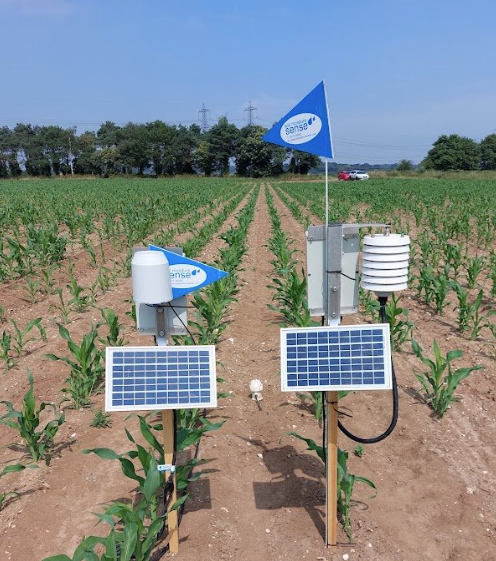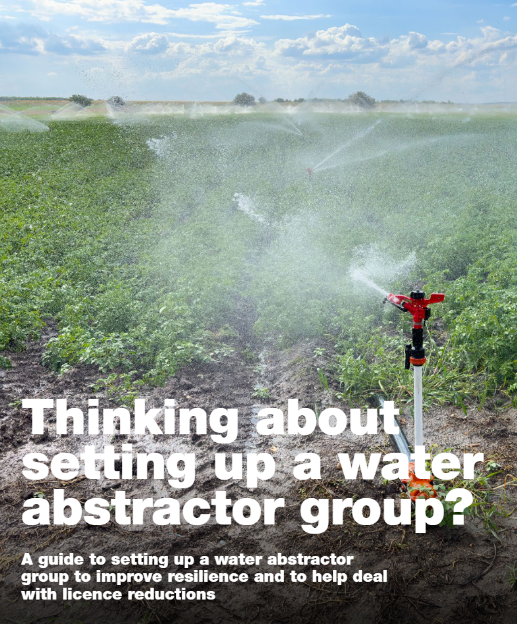Local Resource Options - Join our community
Working Together on Local Water Resilience
Applications for the current round of Local Resource Option (LRO) Screening Studies are now closed, and the 2025/26 programme is underway. We’re running 12 studies this year, including two multi-sector projects, all kicking off in September 2025.
You can still view the previous guidance and application form here (for reference): How to apply for a local water resources options screening study - GOV.UK
Questions or Interested in Collaborating?
Email the Environment Agency Water Resources Resilience Team: WRAgriculture@environment-agency.gov.uk
Tip: You can also subscribe to this Water Hub page to get updates on study progress and any future application windows.
LRO Screening Studies - Supporting Water Resilience from the Ground Up
Farmers across England are facing growing uncertainty around water supply due to climate change, changing abstraction regulations, and increasing pressure on local water resources. To help address these challenges, the Environment Agency launched Local Resource Option (LRO) Screening Studies, a government funded initiative designed to support groups of farmers in identifying practical, local solutions to improve their long-term water resilience.
Each LRO screening study brings together a small group of farms to assess their current and future water needs. With support from water resource consultants, groups explore a range of water management options tailored to their area, whether that means expanding storage, capturing high-flow water, recycling treated effluent, or working together to share existing resources more efficiently.
The LRO programme is not just about technical solutions, it’s about empowering collaboration, supporting informed decision-making, and building a foundation for future investment and action.
The first round of the programme ran from August 2024 to February 2025, with 20 studies completed involving over 100 farms across four of the five regions of England. Feedback from participants has been overwhelmingly positive with many growers valuing the tailored, expert advice and the opportunity to collaborate with neighbouring farms on shared water challenges. Several groups are now using their study results to inform planning applications, engage with regulators, or continue working together through Water Abstractor Groups (WAGs) and catchment partnerships.
- Explore the case studies to see some of the outcomes from the first round of LRO Screening Studies.
- Keep an eye on this page for more information on future rounds of applications. The full application process can be found here: How to apply for a local water resources options screening study - GOV.UK
"The recent LRO initiative generated much enthusiasm among farmer groups. It alerted many to the serious risks they face and the benefits of sitting down together to discuss storage and water sharing as a means of building resilience for the future."
- Melvyn Kay, Executive Secretary of the UK Irrigation Association
What is a Local Resource Option (LRO)?
 Soil moisture monitoring systems are an example of an LRO.
Soil moisture monitoring systems are an example of an LRO.
 Soil moisture monitoring systems are an example of an LRO.
Soil moisture monitoring systems are an example of an LRO. A Local Resource Option (LRO) is a water resource solution designed to enhance water resilience or supply for a small group of abstractors within their area. Owned, operated, and managed by the abstractors themselves. LROs range from infrastructure projects like reservoirs and rainwater harvesting systems to collaborative solutions such as water sharing agreements or licence pooling.
The goal of an LRO is to help abstractors adapt to a changing climate by identifying viable, practical options to secure water for irrigation and future farm productivity, while protecting the environment.
While the LRO Screening Studies to date have primarily focused on farmers and growers, abstractors from other sectors, such as leisure or industry, could also benefit from implementing LROs. If you’re part of a non-agricultural organisation and interested in receiving a screening study in the next round, you may still be eligible. See above for more details.
- Check out the links under Local Resource Options in Action to see how farm groups across England are already implementing their own LROs.
How the LRO Screening Studies Work
LRO Screening Studies are short, expert-led projects designed to help small groups of farmers, growers, or other abstractors explore practical ways to improve their water resilience. Each study is commissioned by the Environment Agency and delivered by specialist water resources consultants, typically taking 3 to 4 months from start to finish.
It all starts with a site visit and open conversation. The consultant will meet with participating farms to understand current water use, future needs, and the key challenges the group faces. From there, they identify a broad range of potential Local Resource Options, tailored to the local geography, infrastructure, and goals of the group.
These options are then screened and ranked to find the best fit. The top three are taken forward for detailed evaluation, which includes:
Estimated cost
Expected water yield and reliability
Environmental and social impact
Regulatory or technical challenges
Clear next steps for development
At the end of the study, each group receives a tailored report that gives them a clear, evidence-based roadmap for action. While the screening does not fund or guarantee implementation, it gives participants the insight and confidence to take their next steps, whether that’s applying for funding, progressing with planning, or working more closely with regulators and neighbours.
Note: Completing an LRO Screening Study does not influence future licensing or permitting decisions, and does not replace the need to go through standard application processes.
Local Resource Options (LRO) Screening Methodology
What this is
A screening study is a structured desktop exercise that helps a small group of water users identify the most practical ways to improve water resilience. You bring together local facts (water use, licences, rivers/ditches, storage), list the possible options, then score/rank them to identify your top 2–3 with outline costs, yields and next steps. It’s not detailed design or permitting, it’s a short, practical sift to decide what’s worth taking forward.
A Local Resource Option (LRO) is any water solution owned, operated and/or controlled by the local abstractors that improves supply or resilience for the group. Examples include storage reservoirs, high-flow capture, water sharing/trading, rainwater harvesting, drainage-water reuse, recycling treated wastewater, managed aquifer recharge, demand/leak reduction, and linking existing sources.
Below are links to the LRO Screening Methodology used by consultants in the government-funded LRO Screening Studies. In principle, these two documents enable you to carry out your own screening study; however, please note they are high-level and designed for water resources practitioners (consultants/technical advisers).
Who this is for
Best suited to: consultants and technically confident project managers, or abstractor groups working with a practitioner.
Typical group size: small, neighbouring abstractors (often 2–5).
Typical effort: 3–6 weeks of light input, 2–4 meetings.
What you'll find
LRO Spreadsheet Tool (Appendix A): workbook to structure data, screening and ranking at desktop stage.
JBA Methodological Framework (Appendix B): the step-by-step technical method used by our consultants.
How the screening works at a glance
Step 1: Assemble local facts: current/future demand (dry year), licensed supply (rate/season/HoF), existing storage, drainage/IDB connections, and constraints (SSSI/SAC/Ramsar).
Step 2: Build three simple balances: Now, Near-term (reflecting ED/HoF constraints), and 2050.
Step 3: Long-list options (source + storage + conveyance), then screen out non-starters.
Step 4: Score & rank the shortlist against locally weighted criteria (benefit/reliability, cost, time to deliver, permits, operational complexity, environmental effects, fit with farm aims).
Step 5: Do a light deep dive on the top 2–3 to check yield, cost (levelised £/m³) and deliverability (consents/next steps).
When to get expert help (strongly advised if any apply)
Interpreting Hands off Flow conditions or Environmental Destination reductions; planning licence changes.
Estimating yields/reliability beyond quick screening (e.g., high-flow hours, groundwater, Managed Aquifer Recharge).
Engineering design/sizing (reservoirs, pumps/pipes, inter-farm transfers, automation/controls).
Environmental assessment and permissions (HRA/EIA, Internal Drainage Board (IDB)/land drainage, planning).
Formal agreements/governance for water sharing or trading.
Important caveats
This method does not change permits/licences or guarantee future permissions.
Many options require planning, land drainage/IDB consents, and/or licence variations.
Conveyance via natural watercourses or storage in drains/floodplains needs legal agreements and environmental checks- engage early with relevant authorities.
Need support?
For general queries about the methodology or the LRO Screening Study programme: WRAgriculture@environment-agency.gov.uk


